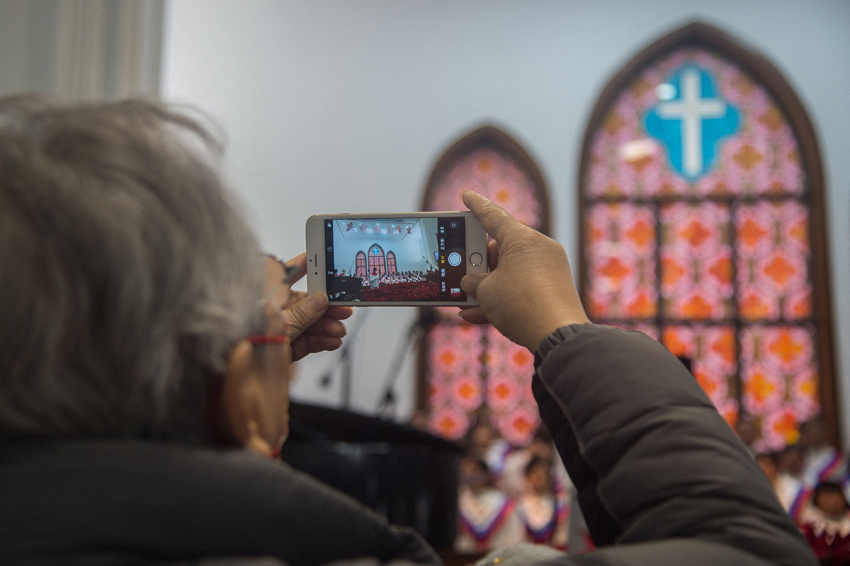'Disinformation' enabling religious persecution abroad, watchdog warns

A United States-based watchdog panel warns that foreign governments are increasingly using misinformation and disinformation to suppress the rights of religious minorities within their borders, calling out countries like China, India and Russia.
The U.S. Commission on International Religious Freedom, a bipartisan agency created to advise the U.S. government and Congress on global religious freedom matters, released the report titled "Misinformation and Disinformation: Implications for Freedom of Religion and Belief."
The commission warns that "governments are promoting both misinformation and disinformation through campaigns targeting religious communities and by denying the existence of official policies targeting such groups."
"Government misinformation or disinformation can increase the risk of violence that targets religious minorities," the report stated. "States propagating misinformation and disinformation about religious individuals are creating an environment enabling violations of their international legal right to FoRB."
Government propagation of misinformation and disinformation about religious minority communities restricts religious freedom in two ways, USCIR argues.
"First, misinformation and disinformation can amplify intolerance from individuals who may believe the content of these campaigns and harass, intimidate, or threaten the targeted religious groups," the report insists. "Second, misinformation and disinformation signals to targeted religious communities that governments will not ensure their freedom of religion or belief and may actively seek to restrict it."
While USCIRF praised the U.S. State Department for creating a The Framework to Counter Foreign State Information Manipulation focused on ensuring the "protection of marginalized groups" from misinformation and disinformation, it called on the U.S. government to take action to "emphasize the profound harms that government misinformation and disinformation have on the ability of targeted religious groups to exercise their right to FoRB."
In China, the report notes that online actors working at the behest of Chinese authorities "overload search engines and social media feeds to drown out critical information and criticism of state policies" targeting the Uyghur religious minority.
USCIRF maintains that "pro-Chinese Communist Party (CCP) online accounts have harassed Uyghur diaspora communities to stop members from criticizing the Chinese government and telling their personal experiences of state abuse."
It cited the purpose of the efforts as to "manipulate global opinion about its ongoing genocide and crimes against humanity targeting predominately Muslim Uyghurs and other Turkic peoples in the Xinjiang region."
In India, disinformation propagated by Prime Minister Narendra Modi in April 2024 falsely claimed that his political opponents would redistribute wealth from Hindus to Muslims while a member of his cabinet warned of the imposition of sharia law if the opposition party was elected.
The report also listed the publication of new textbooks that remove all references to 2002 riots in Gujarat that resulted in the death of hundreds of Muslim Indians.
In Iran, examples of misinformation include false assertions from state media that "the Jewish holiday of Purim is a celebration of the mass murder of Iranians" and that "Christian converts from Islam are part of a 'Zionist' network that poses a national security risk."
"Such false claims create a restrictive environment for FoRB in Iran in the context of arrests, imprisonment and sometimes executions of" religious minority groups in the country," the report states.
The Russian government has labeled a variety of religious groups as "neo-pagan cults," including the Protestant Word of Life Church, while a Russian government-supporting television channel maintained that Jehovah's Witnesses were "stockpiling ammunition and threatening Russian war efforts in Russian-occupied Crimea."
The report notes that the propagation of disinformation on behalf of the Russian government occurs in the context of the country's ongoing war with Ukraine.
The report singled out Russia's targeting of Ukrainian President Volodymyr Zelenskyy on "explicitly religious grounds" by calling him a "peculiar kind of Jew" and a "disgrace to the Jewish people."
USCIRF also touched upon the Pakistani government's treatment of the Ahmadiyya Muslim community, specifically citing concerns that their religious activities will "cause deterioration of law and order" as justifications for arresting them.
"Governmental misinformation and disinformation against individuals or groups on the basis of their religious beliefs has growing and concerning implications for FoRB," the report concluded. "Governments are increasingly using such tactics to threaten, harass, intimidate, and attack individuals and communities on the basis of their religious beliefs."
"The U.S. government, collaborating with like-minded governments, should continue to develop strategies to counter governments using misinformation and disinformation to encourage or justify restrictions on FoRB."
Ryan Foley is a reporter for The Christian Post. He can be reached at: ryan.foley@christianpost.com



























